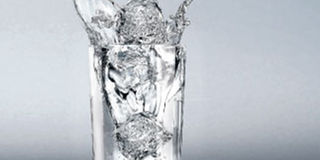When hepatitis strikes

The main issue with hepatitis is that if the liver is affected by or gets scarred from inflammation or infection, it cannot effectively do all of its jobs — and there are plenty. Photo/FILE
What you need to know:
- Recover from this viral infection with the aid of the right foods and supplements
It is rare for me to see two people with the same problem in one week, but last week I saw three people with hepatitis. Hepatitis, which actually means inflammation of the liver, is a condition that can be contracted in different ways depending on which strain you get.
While hepatitis A is passed through contact with infected water, food, or faeces, B and C are usually contracted through sex or contact with infected blood.
When someone is initially infected with the hepatitis virus, it often triggers a condition called acute hepatitis. This often starts out like a flu, after which the skin may start to yellow (jaundice).
With hepatitis A, the illness is usually self-limiting. However those infected with hepatitis B or C are at risk of the infection persisting in the long term, or what is known as chronic hepatitis.
No coffee
The main issue with hepatitis is that if the liver is affected by or gets scarred from inflammation or infection, it cannot effectively do all of its jobs — and there are plenty.
The liver processes toxins, produces digestive juices, balances blood sugar, regulates hormones, and even stores vitamins and minerals. That is why any treatment is about lessening the load on the liver so it can start to do all its jobs again.
If you are in the acute phase of a hepatitis infection, the first things to avoid are caffeine and alcohol. While alcohol is easy enough to identify, caffeine can be found in a variety of beverages and even chocolate (dark varieties being the worst).
If you do have a caffeine habit, you will need to eliminate these items slowly; stopping suddenly can give you withdrawal symptoms such as headaches, nausea, and irritability.
Fatty foods, meat, and dairy products are also best eliminated as they are difficult to digest. I realise that it will be tough, but sugar is also best eliminated (ditto artificial sweeteners, which are even harder for your poor liver to process).
Extra vitamin C
One thing you should be having plenty of is water. It is great at flushing out toxins and the normal recommend eight-glasses-a-day should do the trick.
Insofar as supplements are concerned, two are worthy of mention: Milk thistle and vitamin C. Numerous studies have shown the herb milk thistle (silymarin) to be beneficial to liver function and taking it may help restore the liver to health. 70 mg of silymarin should be taken three times a day.
As for vitamin C, aside from its immune-stimulating and anti-viral properties, it is also great for promoting tissue healing and may, therefore, help to reduce the risk of damage to the liver in the longer term. I would suggest 1 gramme of vitamin C three times a day.
For those suffering from chronic hepatitis, I would also suggest the nutrient liquorice. Liquorice root contains a substance called glycyrrhizin which, like vitamin C, helps to protect the liver and also has anti-viral properties.
I would recommend 500 mg of liquorice root three times a day. However, since liquorice is a particularly potent supplement, I would strongly suggest consulting a qualified health professional prior to taking it.
www.nutritionbysona.com




